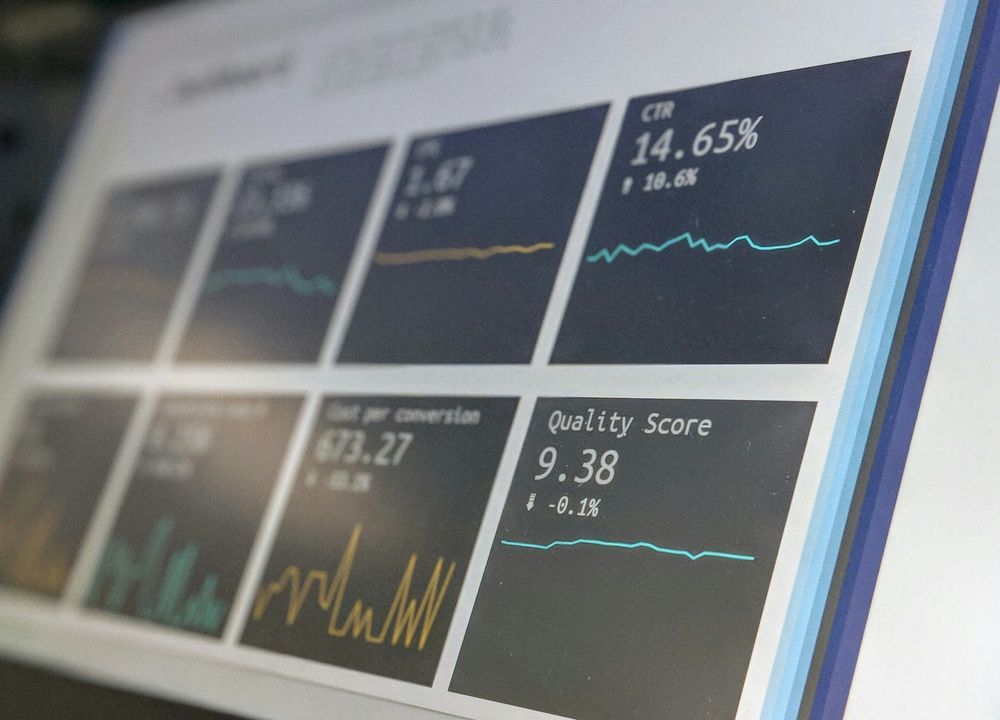SEO Analysis and Rank Tracking
Explore how cloud browsers enhance SEO analysis and rank tracking. Learn to gather accurate, location-specific data for better search engine optimization strategies. Discover tools and techniques for monitoring your website's performance across different regions.
![]()
The Importance of SEO Analysis and Rank Tracking in 2024
In the ever-evolving digital landscape of 2024, SEO analysis and rank tracking have become more crucial than ever for businesses and marketers. With search engines constantly refining their algorithms and user behavior shifting, staying on top of your website's performance in search results is paramount. It's not just about knowing where you rank; it's about understanding why you rank there and how to improve.
The sheer volume of online content has made competition for top search positions fiercer than ever. Businesses that fail to monitor and optimize their search rankings risk becoming invisible to potential customers. Moreover, with the rise of localized search results and personalized content, traditional rank tracking methods are no longer sufficient. This is where advanced tools and techniques, particularly those leveraging cloud technology, come into play.
SEO professionals and digital marketers now need to track rankings across multiple locations, devices, and search engine result page (SERP) features. They must also analyze competitor movements, identify emerging trends, and adapt strategies quickly. The ability to gather accurate, real-time data has become a game-changer in the SEO world. As we delve deeper into this topic, we'll explore how cloud browsers are revolutionizing SEO analysis and rank tracking, providing unprecedented insights and capabilities to those who harness their power.
Understanding SEO Analysis and Rank Tracking
SEO analysis and rank tracking are fundamental components of any comprehensive search engine optimization strategy. At its core, rank tracking involves monitoring the position of your website's pages in search engine results for specific keywords. This process helps you understand how visible your site is to potential visitors and how it stacks up against competitors.
SEO analysis goes a step further, encompassing a wide range of factors that influence your site's search performance. This includes analyzing on-page elements like content quality, meta tags, and site structure, as well as off-page factors such as backlink profiles and social signals. The goal is to identify strengths and weaknesses in your SEO strategy and uncover opportunities for improvement.
In practice, SEO professionals use a variety of tools and techniques to gather and interpret this data. They might track rankings daily or weekly, analyze changes over time, and correlate ranking shifts with specific on-site or off-site changes. They also monitor competitor rankings and analyze top-performing pages to glean insights for their own strategies.
The Challenges of Modern SEO Analysis
While the principles of SEO analysis and rank tracking remain consistent, the landscape in which they operate has become increasingly complex. Search engines now deliver personalized results based on factors like location, search history, and device type. This means that rankings can vary significantly from one user to another, making it challenging to get an accurate picture of your true search visibility.
Furthermore, the rise of featured snippets, knowledge panels, and other SERP features has changed what it means to 'rank well'. Sometimes, being in position one isn't as valuable as securing a featured snippet or local pack result. SEO professionals must now track and analyze these various SERP features in addition to traditional organic rankings.
Another challenge is the sheer scale of data involved. For businesses operating in multiple locations or targeting various regions, tracking rankings across all relevant locations and languages can be a daunting task. This is where advanced tools and cloud-based solutions come into play, offering the ability to gather and analyze vast amounts of data quickly and accurately.
Why Cloud Browsers are Essential for SEO Analysis and Rank Tracking
Cloud browsers have emerged as a game-changing tool in the world of SEO analysis and rank tracking. These virtual browsers, running on remote servers, offer several key advantages that make them indispensable for modern SEO professionals. Let's explore why cloud browsers are becoming essential for accurate and efficient SEO analysis.
First and foremost, cloud browsers allow you to simulate searches from different geographic locations with ease. This is crucial in an era where search results are heavily localized. By using a cloud browser service like Rebrowser, you can conduct searches as if you were in New York, London, or Tokyo, all from your own desktop. This gives you accurate insights into how your website ranks in different markets, enabling you to tailor your SEO strategies accordingly.
Another significant advantage is the ability to conduct large-scale, automated rank tracking without triggering search engine penalties. Traditional methods of rank checking, especially when done at scale, can sometimes be flagged as suspicious activity by search engines. Cloud browsers, with their distributed nature and ability to mimic real user behavior, can perform these checks without raising red flags. This means you can track rankings for hundreds or even thousands of keywords across multiple locations without worrying about IP blocks or skewed results.
Overcoming Technical Limitations
Cloud browsers also help overcome technical limitations that often plague traditional SEO tools. Many rank tracking tools struggle with JavaScript-rendered content, dynamic elements, and complex SERP features. A cloud browser like Rebrowser, however, renders pages exactly as a real user would see them, ensuring you capture accurate data even from the most complex search result pages.
Moreover, cloud browsers offer superior scalability. As your SEO analysis needs grow, you can easily scale up your rank tracking efforts without investing in additional hardware or worrying about bandwidth limitations. This is particularly beneficial for agencies handling multiple clients or large enterprises tracking rankings across numerous domains and locations.
Lastly, the use of cloud browsers enhances the anonymity and consistency of your rank tracking efforts. By leveraging Rebrowser's unique fingerprints and seamless proxy integration, you can ensure that your rank checks appear as genuine user queries to search engines. This not only improves the accuracy of your data but also protects your SEO campaigns from being influenced by your own tracking activities.
SEO Analysis: With and Without Cloud Browsers
To truly appreciate the impact of cloud browsers on SEO analysis and rank tracking, let's compare the experience of conducting these tasks with and without this technology. This comparison will highlight the significant advantages that cloud browsers bring to the table.
| Aspect | Without Cloud Browsers | With Cloud Browsers (e.g., Rebrowser) |
|---|---|---|
| Geographic Accuracy | Limited to physical location or VPN | Precise simulation of any location globally |
| Scalability | Constrained by local resources and IP limitations | Highly scalable, can handle thousands of queries simultaneously |
| SERP Feature Tracking | Often inaccurate or incomplete | Precise tracking of all SERP features as seen by real users |
| Automation | Risk of being flagged as bot activity | Appears as genuine user activity, reducing the risk of penalties |
| Data Consistency | Variable results due to personalization | Consistent results across multiple checks |
| JavaScript Rendering | May struggle with dynamic content | Fully renders all page elements, including JavaScript |
| Cost Efficiency | High costs for scaling hardware and bandwidth | Pay-as-you-go model, no hardware investments needed |
Without cloud browsers, SEO professionals often struggle with the limitations of their physical location. They might resort to using VPNs, which can be unreliable and often detected by search engines. Scaling up operations typically means investing in more hardware and managing multiple machines, which can be both costly and time-consuming.
In contrast, using a cloud browser service like Rebrowser transforms the SEO analysis and rank tracking process. It allows for seamless scaling, accurate geographic targeting, and consistent results. The ability to mimic real user behavior means that even large-scale, automated rank tracking appears natural to search engines, preserving the integrity of the data collected.
Enhanced Insights and Efficiency
Cloud browsers also offer enhanced insights that are difficult or impossible to obtain through traditional methods. For instance, with Rebrowser, you can easily compare search results across different devices, operating systems, and browser versions. This level of granularity is crucial in today's mobile-first world, where rankings can vary significantly between desktop and mobile searches.
Furthermore, the efficiency gains are substantial. Tasks that might take hours or days with traditional methods can be completed in minutes using cloud browsers. This not only saves time but also allows for more frequent rank checks and more comprehensive analysis, leading to more agile and responsive SEO strategies.
In essence, cloud browsers level the playing field, giving smaller teams and businesses access to the kind of comprehensive SEO analysis capabilities that were once the domain of large corporations with extensive resources. By leveraging services like Rebrowser, SEO professionals can focus on strategy and optimization rather than grappling with technical limitations and data collection challenges.
![]()
How to Use Rebrowser for SEO Analysis and Rank Tracking
Leveraging Rebrowser for SEO analysis and rank tracking can significantly enhance your capabilities and efficiency. Here's a step-by-step guide on how to utilize this cloud browser service to its full potential for your SEO efforts.
1. Set Up Your Project: Start by creating a new project in Rebrowser specifically for SEO analysis. This will help you organize your rank tracking efforts and keep your data separate from other tasks.
2. Define Your Keywords and Locations: Input the keywords you want to track and specify the locations you're interested in. Rebrowser allows you to simulate searches from various global locations, giving you accurate, localized ranking data.
3. Configure Browser Settings: Adjust the browser settings to match your target audience. This might include setting specific user agents, screen resolutions, or even mimicking particular devices to get the most accurate representation of what your users see.
Automating Rank Checks
4. Create Automated Scripts: Utilize Rebrowser's automation-friendly features to create scripts for regular rank checks. You can use Puppeteer or Playwright with minimal modifications to your existing scripts. This allows you to schedule regular ranking checks without manual intervention.
5. Run Large-Scale Queries: Take advantage of Rebrowser's scalability to run ranking checks for hundreds or thousands of keywords simultaneously. The cloud infrastructure ensures that these queries appear as natural user behavior to search engines.
6. Analyze SERP Features: Use Rebrowser to capture and analyze various SERP features like featured snippets, knowledge panels, and local packs. The accurate rendering capabilities ensure you don't miss any important elements that could affect your SEO strategy.
Data Collection and Analysis
7. Collect and Store Data: Set up your scripts to collect ranking data, including URL positions, SERP features, and any other relevant metrics. Rebrowser's persistent profiles ensure consistent data collection across sessions.
8. Visualize Trends: Use the collected data to create visualizations and reports. While Rebrowser focuses on data collection, you can export this data to your preferred analytics tools for deeper analysis and visualization.
9. Monitor Competitors: Use Rebrowser to track your competitors' rankings alongside your own. This gives you a comprehensive view of your market position and helps identify opportunities for improvement.
By following these steps, you can harness the full power of Rebrowser for your SEO analysis and rank tracking needs. The combination of accurate, localized data collection and scalable automation capabilities makes it an invaluable tool for SEO professionals looking to stay ahead in an increasingly competitive digital landscape.
Potential Challenges and Solutions When Using Rebrowser for SEO
While Rebrowser offers powerful capabilities for SEO analysis and rank tracking, users may encounter some challenges. Understanding these potential issues and knowing how to address them is crucial for maximizing the benefits of this cloud browser service.
One common challenge is adapting to the cloud-based environment. SEO professionals accustomed to running scripts locally might need time to adjust their workflows. The solution lies in leveraging Rebrowser's documentation and support resources. Familiarize yourself with the platform's features and best practices for transitioning your existing scripts to the cloud environment.
Another potential issue is managing the vast amount of data generated through large-scale rank tracking. While Rebrowser excels at data collection, organizing and analyzing this data can be overwhelming. To address this, consider integrating Rebrowser with data analysis tools or developing custom dashboards. This allows you to transform raw ranking data into actionable insights efficiently.
Ensuring Data Accuracy and Consistency
Maintaining consistency in results across different sessions can sometimes be challenging, especially when dealing with dynamic search results. Rebrowser's persistent profiles help mitigate this issue by maintaining consistent local storage and cookies. However, it's still important to regularly verify your results and establish baseline measurements to identify any anomalies.
Privacy and data security concerns may also arise when using a cloud-based service for SEO analysis. Rebrowser addresses this with robust security measures, but it's crucial to follow best practices. Use strong, unique passwords, enable two-factor authentication if available, and be mindful of the data you store within the platform.
Lastly, while Rebrowser's AI-assisted CAPTCHA solving is highly effective, you may occasionally encounter new or particularly challenging CAPTCHAs. Stay informed about updates to CAPTCHA systems and be prepared to manually solve complex cases when necessary. Rebrowser's team continuously works on improving CAPTCHA handling, so make sure to keep your scripts updated with the latest recommendations.
By being aware of these potential challenges and implementing the suggested solutions, you can ensure a smooth and productive experience using Rebrowser for your SEO analysis and rank tracking needs. Remember, the Rebrowser support team is always available to assist with any specific issues you might encounter.
![]()
Scaling Your SEO Efforts with Cloud Browsers
One of the most significant advantages of using cloud browsers like Rebrowser for SEO analysis and rank tracking is the ability to scale your efforts effortlessly. This scalability can transform your SEO strategies, allowing you to gather more comprehensive data and insights than ever before. Let's explore how you can leverage this scalability to enhance your SEO efforts.
Firstly, cloud browsers enable you to track rankings across multiple locations simultaneously. With traditional methods, checking rankings for numerous keywords in different cities or countries could take days or even weeks. Rebrowser allows you to run these checks concurrently, providing a global view of your SEO performance in a fraction of the time. This rapid data collection enables more frequent rank tracking, allowing you to spot trends and react to changes quickly.
Another aspect of scalability is the ability to monitor a vast number of keywords. While small businesses might focus on a handful of key terms, enterprises or agencies often need to track thousands of keywords across multiple domains. Rebrowser's cloud infrastructure can handle these large-scale operations without the need for additional hardware or complex setups. This capability is particularly valuable for e-commerce sites with extensive product catalogs or news sites covering a wide range of topics.
Advanced Analysis and Competitor Monitoring
Scalability also extends to more advanced SEO analyses. For instance, you can use Rebrowser to conduct large-scale SERP feature analysis, tracking the prevalence of featured snippets, knowledge panels, and other elements across your keyword set. This comprehensive view can inform your content strategy, helping you target the most valuable SERP features in your niche.
Competitor monitoring is another area where scalability proves invaluable. With Rebrowser, you can track not just your own rankings, but those of multiple competitors across all your target keywords and locations. This broader perspective helps you identify competitive gaps and opportunities more effectively than traditional, limited-scope tracking methods.
Furthermore, the scalability of cloud browsers allows for more sophisticated SEO experiments. You can test the impact of various on-page changes across a large sample of pages, or analyze the effects of link building efforts on a broader scale. This level of experimentation can lead to more data-driven, nuanced SEO strategies.
By harnessing the scalability offered by Rebrowser, SEO professionals can move beyond sample-based analysis to comprehensive, data-rich strategies. This shift not only improves the accuracy of your SEO insights but also opens up new possibilities for optimization and growth in an increasingly competitive digital landscape.
FAQ: SEO Analysis and Rank Tracking with Rebrowser
Q: How does Rebrowser ensure accurate, location-specific ranking data?
Rebrowser utilizes a network of real devices with unique fingerprints across various locations. When you request a search from a specific location, Rebrowser routes your query through a device in that area, ensuring that the results accurately reflect what a local user would see. This method provides much more reliable data than traditional VPN-based solutions.
Additionally, Rebrowser's advanced proxy integration allows for seamless switching between different locations, further enhancing the accuracy of location-specific data.
Q: Can Rebrowser handle JavaScript-rendered content in search results?
Yes, Rebrowser fully supports JavaScript rendering. Unlike some traditional SEO tools that struggle with dynamic content, Rebrowser operates as a full-fledged browser, rendering pages exactly as a real user would see them. This capability ensures that you capture accurate data from all search results, including those with JavaScript-rendered elements, single-page applications, and complex SERP features.
Q: How does Rebrowser help in scaling up SEO analysis operations?
Rebrowser offers unparalleled scalability for SEO analysis. Its cloud-based infrastructure allows you to run hundreds or even thousands of queries simultaneously without investing in additional hardware. You can easily scale your rank tracking efforts across multiple keywords, locations, and devices.
Moreover, Rebrowser's automation-friendly features enable you to set up and run large-scale, automated rank tracking tasks with minimal code modifications to your existing Puppeteer or Playwright scripts.
Q: Is it possible to integrate Rebrowser with other SEO tools and analytics platforms?
While Rebrowser primarily focuses on data collection and browser automation, it's designed to work seamlessly with other tools in your SEO stack. You can easily export the data collected through Rebrowser to your preferred analytics platforms or custom dashboards.
Rebrowser's flexible API and support for popular automation frameworks make it straightforward to integrate into your existing workflows and data pipelines, allowing you to combine its powerful data collection capabilities with your preferred analysis tools.
Q: How does Rebrowser handle CAPTCHAs and other anti-bot measures during rank tracking?
Rebrowser employs several strategies to handle CAPTCHAs and bypass anti-bot measures. First, its use of real devices with unique fingerprints significantly reduces the likelihood of encountering CAPTCHAs. When CAPTCHAs do appear, Rebrowser utilizes AI-assisted CAPTCHA solving capabilities to handle them automatically in most cases.
For more sophisticated anti-bot measures, Rebrowser's ability to mimic genuine user behavior, combined with its advanced proxy integration, ensures that your rank tracking activities appear as natural user queries to search engines, minimizing the risk of being flagged or blocked.
References:
- Moz. (2024). The Beginner's Guide to SEO.
- Google. (2023). Search Engine Optimization (SEO) Starter Guide.
- Searchmetrics. (2023). Global SEO Ranking Factors.
- Liu, B., & Gao, Y. (2021). Web Scraping and API Usage for SEO: Techniques and Ethical Considerations. Journal of Information Technology and Digital World, Vol. 3(2), 80-95. DOI: 10.46402/jitdw.2021.3.2.80
- Ahrefs. (2024). How to Do an SEO Competitor Analysis.
- Baye, M. R., De los Santos, B., & Wildenbeest, M. R. (2016). Search Engine Optimization: What Drives Organic Traffic to Retail Sites? Journal of Economics & Management Strategy, Vol. 25(1), 6-31.



